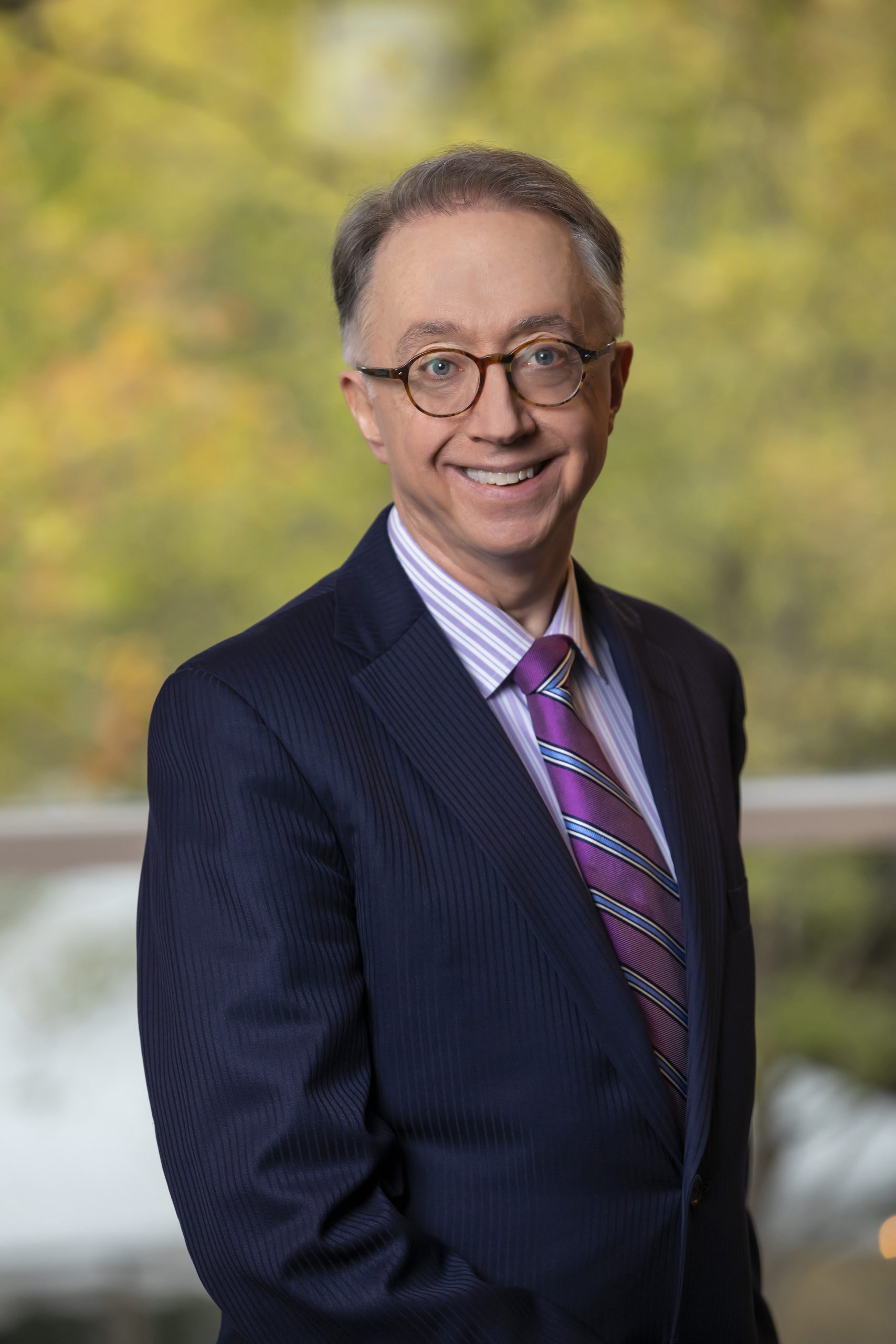
When Richard Willis went to work after graduate school as a market analyst for E&J Gallo Winery, he did not envision his career path leading to the Vanderbilt Owen Graduate School of Management, where he has become a highly respected accounting professor. In addition to being admired and appreciated by students and colleagues for his teaching and mentoring skills, he is a leading voice at Vanderbilt for improving processes that help faculty and research staff achieve their goals.
Willis is the Anne Marie and Thomas B. Walker Jr. Professor of Accounting and senior associate dean for the Owen School faculty, a role he describes as assisting faculty members “from hire to retire.” He enjoys getting to know faculty while helping them with everything from smooth onboarding processes—including making sure they have the tools to do their research—to key career milestones like tenure review and promotion. He also helps facilitate personal milestones, such as parental leave and retirement.
Willis took on additional responsibilities in September as an associate provost for research and innovation, joining the team under the leadership of Vice Provost Padma Raghavan to advance the university’s research and innovation priorities and partnerships. His ongoing efforts include collaborating with Vanderbilt University Research Council members to map opportunities and challenges in the externally funded research landscape and partnering with Sponsored Programs Administration and other OVPRI teams to enhance research and innovation onboarding resources for new faculty.
“I am fortunate to work with a broad set of colleagues across campus, heightening my appreciation for the breadth of expertise and resources at Vanderbilt,” Willis said. “Even though I am not a grant-funded researcher, I understand the tremendous responsibilities that many of our faculty have in terms of securing and stewarding grants, managing laboratories, hiring staff and more. Any small role I can play in helping facilitate that work through the Office of the Vice Provost for Research and Innovation is rewarding for me.”
Willis joined the Owen School in 2006 as an associate professor of accounting after teaching in the business schools of Duke and Tulane universities. A turning point in Willis’ early career in marketing research was his return to school to pursue an MBA. “I discovered how much I loved the teaching and research side of business school and decided to forego another corporate position,” he said. After completing his MBA at Duke, Willis enrolled in graduate school at the University of Chicago, earning his doctorate in 1998.
“A longtime focus of my research has been what we call financial intermediaries—the analysts at major brokerage firms who make recommendations on buying and selling investments,” Willis said. “We consider those individuals to be sophisticated users of financial accounting information, so I want to bring greater understanding on how analysts process and use that data, how are these individuals evaluated, and what are the consequences for those who follow their advice?”
Willis’ research has evolved to include CEOs of publicly traded companies, their companies’ earnings releases, and the stock market’s reaction to those announcements. In addition, he is conducting research on the issue of corporate tax avoidance, which he emphasizes is different from tax evasion.
“We are talking about minimizing taxes and the reasons that this could occur in particular years,” he said. “For example, my co-authors and I found a tendency for companies to minimize taxes in an election year, perhaps because of the uncertainty of the outcome. There could be an effort to lock in savings before voters go to the polls. We also found less tax avoidance among companies with strong boards of directors.”
In addition to his research and teaching, Willis is a leader in Vanderbilt initiatives to deepen faculty engagement in university decision-making. After serving as chair of the Faculty Senate 2015–16, he and Holly McCammon, Cornelius Vanderbilt Professor of Sociology, co-chaired the Shared Governance Committee Project, which delivered a series of recommendations to increase collaboration between the administration and faculty.
“What we did was a deep dive into understanding shared governance at Vanderbilt, defining best practices around shared governance, and comparing Vanderbilt to peer institutions on the process,” Willis said.
Among initiatives sparked by the Shared Governance Project was the Task Force on Administrative Effectiveness, chaired by Stevenson Professor of Physics Victoria Greene, and the current Task Force on Administrative Effectiveness Follow-on Committee, chaired by Willis.
“We have been charged by Provost Cybele Raver with studying the original TFAE report, benchmarking how Vanderbilt’s research processes look relative to other institutions, understanding opportunities for enhancement and collaborating with partners on campus to implement the recommendations,” Willis said.
An example of the committee’s ongoing work is evaluation of best practices surrounding faculty mentorship. “Mentoring is beneficial for helping newer faculty reach their goals, but academics value scholarly independence and intellectual freedom,” Willis said. “There is a balancing act between guiding new faculty members to attain success and giving them the opportunity to explore and try out novel ideas.”
The final report from the TFAE Follow-on Committee will be delivered in the spring, but Willis said efforts to improve administrative processes will be “embedded in the university and live continuously beyond the committee report.
“The TFAE is a saliant example of shared governance at work,” Willis said, “that will benefit research and innovation at Vanderbilt for years to come.”